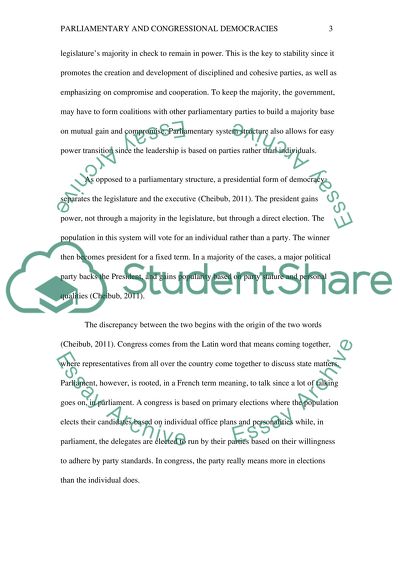Compare and contrast parliamentary and congressional democracies Essay. Retrieved from https://studentshare.org/history/1458359-compare-and-contrast-parliamentary-and
Compare and Contrast Parliamentary and Congressional Democracies Essay. https://studentshare.org/history/1458359-compare-and-contrast-parliamentary-and.


